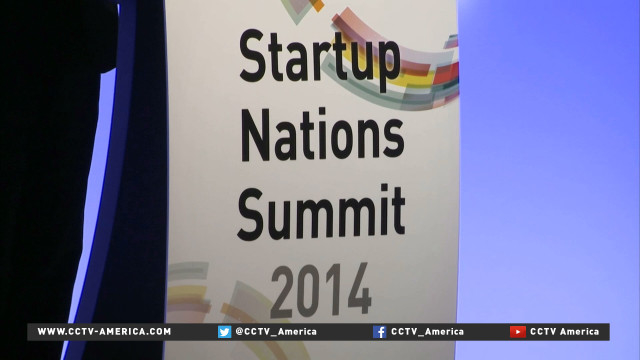More and more Korean startup founders are making successful exits and reinvesting their wealth and experience into developing firms.
CCTV’s U-Jean Jung filed reported this story from Seoul.

Korean startups founders continue to seek new opportunities
More and more Korean startup founders are making successful exits and reinvesting their wealth and experience into developing firms. CCTV's U-Jean Jung filed reported this story from Seoul.Once a talented hacker in college, 38-year-old Chester Roh is now one of South Korea’s leading serial entrepreneurs. He co-founded four startups in 18 years and sold two to big U.S.-based firms Google and Tapjoy.
While continuing to work for Tapjoy as an adviser, he is also an angel investor for 15 local startups.
One of them is Dietnote, a service that motivates you to keep fit. The founders invested about $90,000 and mentors them once a week, Roh said.
In a small basement space in Seoul with 10 employees, including a former athlete and a sports nutrients specialist, Ethan Chung, Dietnote’s Co-CEO is working to provide the most valuable diet information for clients.
Chung says Roh has coached him through the hard times when he questioned his own beliefs.
“We definitely reduced the number of trials and errors and overcame our slumps quickly to swiftly come back on track to try new things and to focus our energy on the next steps,” Chung says.
Roh says what he looks for is not just intelligence but also tenacity. The Dietnote team may not have approached him with the brightest startup idea, at first, but, he was moved by their drive to execute with persistence.
“We’ve been working together for a year-and-a-half. When I tell people something, normally they would just thank me and leave. But this team [Dietnote] is very good at executing ideas. They would immediately put content up on Facebook and start marketing it to gather 100- to 200-thousand users, and learn from their experience,” Roh said.
Global corporations are now expressing growing interest in the country. Even American-based Google plans to open an offline campus in Seoul early next year to nurture domestic startups.
“We think Seoul could be a hub for Asia, a great landing point for great startups and companies, amazing talent. But I can’t underline enough that the entrepreneurs here have an opportunity that’s extremely unique at this time. Because this is the most mobile technology, most broad-band connected ecosystem in the world and community, Korea is full of early adopters. The rest of the world isn’t there yet,” Bridgette Beam, senior manager at Google for entrepreneurs said.
In order for this momentum to continue, experts say Korean startups need to look outward to global customers, and since South Korea provides a geographically and culturally competitive market, it could become Asia’s leading startup hub sooner than expected.
Naree Lee of D.Camp discusses Korea’s startup potential
CCTV America interviewed Naree Lee, managing director of D.Camp, a startup hub in South Korea’s Gangnam district about the growth in startups in Korea.

 CGTN America
CGTN America
